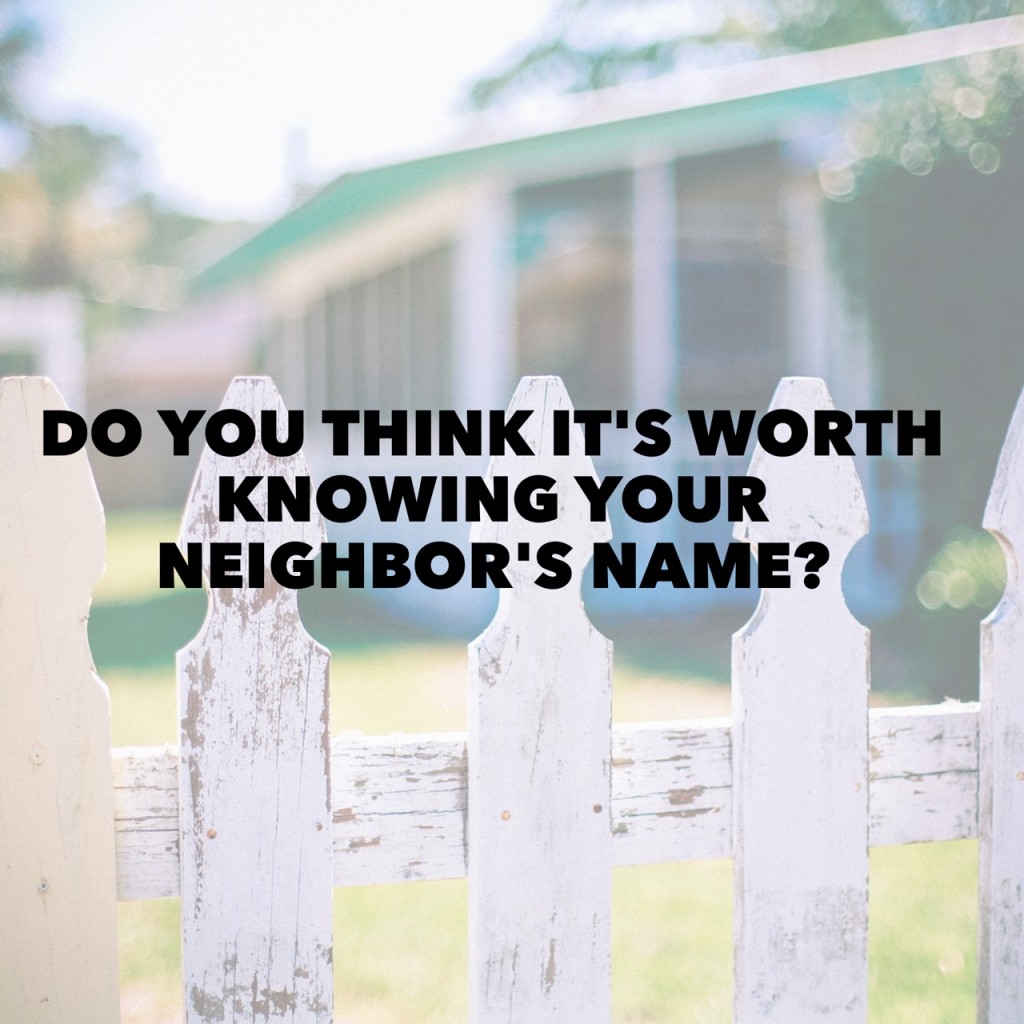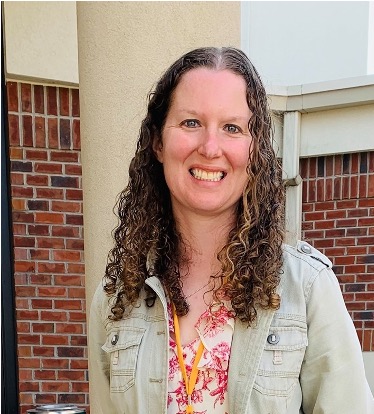“You can tell that somebody is not from here if they talk to people in line at the grocery store.” We all laughed as we talked about the busy life of our metropolitan area’s culture while sitting in the living room of the small group leader’s home. “Yeah, we really don’t even know our neighbors’ names,” replied one woman in the group. I listened but then began to question the legitimacy of those observations—even if they had been made in jest. Of the ten or so gathered, probably two had grown up in the area. I found that “from here” didn’t actually mean “born and bred” here but more so “lived here more than ten years.” These comments explained how the prevailing culture had influenced the habits of many folks who moved here. But what was even more interesting was the fact that most people agreed about the concept of the statement that was made: most people don’t talk to anybody they don’t know, let alone gets to know their names.
And that’s not just true in busy cities anymore.
I don’t think this cultural phenomenon can be dismissed as the aftermath of being told not to talk to strangers when we were young. Maybe you’ve read or heard the statistics of social media often serving to substitute, rather than supplement, face-to-face conversations and leading to more people staying home than interacting in public. Maybe you’ve observed historical trends or listened to stories of yesteryear when people sat on porches instead of in living rooms and knew the local grocer, pharmacist, and mechanic, as well as the names of their kids and pets. Maybe you, yourself, have witnessed change in the dynamics of our social relationships, who we talk to, and how we develop close relationships with others. Do you know your neighbors’ names? Do you know their kids’ and pets’ names? Does your church know the names of the couple on the next block, the kids who play in the parking lot? Do you have a favorite waitress or waiter at the place you go out to eat the most? Have you ever made a new friend from a stranger? Your own experience can do what reports, numbers, and articles cannot do; it can bring those things to life in your own backyard—or neighborhood.
But why should we care about knowing people’s names anyway?
Names are powerful because using them acknowledges that people can be known. People are more than just conglomerates of tissue, blood, and nervous energy—they are created beings that bear the image of God, who also has a personal, knowable name. In Genesis, God gives Adam the command to “name” the animals, and in the Old Testament alone, we find the names of over 2,800 people. In ancient times, some names had spiritual importance while others were passed down family lines. Reading someone’s name versus just a type of person or people group—“Baruch” versus “scribe” or “Israelite”—brings both relational significance and the potential for personal relationship or connection. Those hearing the gospels for the first time in the 1st and 2nd centuries might have either known or known descendants of Joseph of Arimathea, Nicodemus, and Salome. Think of how different, how imaginary the New Testament would sound if it never used names.
Names also carry a risk and danger with them. It’s a lot easier and safer to remain nameless and to exist in a nameless crowd than to ask for someone’s name and give yours. When someone knows your name, there is a part of you that has been opened; you are no longer a face on the street but a real live person with relational accountability. When your neighbors know your name, they identify you with how they see you treat your kids. When you exchange names with the guy you’re guarding in pickup basketball, you might have a conversation after the game. When the barista knows your name, she ties it to the way you leave your trash at your table or tip her. When you know the Verizon guy’s name, you need to stop and ask him how his sick cocker spaniel is doing. If you want to speed through life, don’t learn names or give yours. If you want to see God at work where you’d least expect him, learn some names.
So how can you step out of the cultural trend and begin seeing how God works in the relational space created by names? If you’re a naturally introverted person, the thought of asking for a neighbor’s name or getting to know a cashier beyond giving him your credit card can send you into a panic attack. Relax—knowing and learning names takes time, patience, and practice, and not being creepy. But let me challenge you and your church to experiment, to step out of your comfort zone and try one of the following this week:
- Take a walk around your neighborhood or church’s neighborhood. Look for people outside, and compliment them on their lawn, the game their kids are playing, or how nice the weather is. Walk over to your neighbors next door instead of just waving. Introduce yourself and the name of your yippy dog.
- Ask your cashier, barista, or waitress how his/her day is going. Listen. Read his/her nametag. Look for him/her the next time you come to shop.
- Volunteer at a community event. Either as a church or individually, you’ll get to know others in the community and have the opportunity to talk while collecting tickets, setting up an Easter egg hunt, or picking up trash.
- Initiate a conversation with someone while waiting in line, doing laundry, or using the elevator instead of looking at your phone. Ask a question about a recommendation they have or mention something you heard in the community or something funny you saw recently.
- When you see someone new moving into your building or neighborhood, pay a quick greeting and give directions to the closest Wal Mart and Home Depot.
Names & neighbors. Do you know them? A few initial awkward moments can lead to a connection and even ministry you might never had expected.


